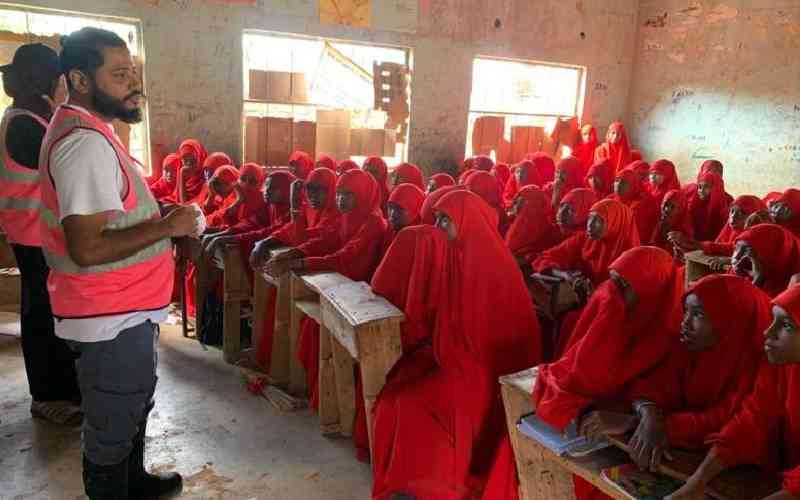Dominic Opaka
Last month a 15-year-old girl died tragically from smoke inhalation after being banished to a ‘Menstruating Hut’.
The girl was taking part in ‘Chhaupadi’, a common practice in the far west of the country where women, considered unclean during menstruation, are removed from their communities during their periods. Chhau means ‘Untouchable’, and Padi means ‘being’. Chhaupadi is a historic practice where women are removed from their house and have to live in a shed. This lasts 10 to 11 days when a teenage girl has her first period and four to seven for every following one. Childbirth also results in a 10 to 11-day confinement. The huts they live in are small and sometimes have no windows, poor sanitation and ventilation. Women and girls cannot touch other people, cattle, green vegetables, plants and fruits. In rural villages, mainly in the Hindu communities in the western part of Nepal, many women and girls spend their periods in an animal shed or a separate shed built outside their homes. This isolation practice was Outlawed in 2005 but the communities have resisted.
According to Wikipedia during this time women are also forbidden from certain foods like milk, yogurt, butter, meat, and other nutritious foods, for fear they will forever mar those goods. The women must survive on a diet of dry foods, salt, and rice. They cannot use warm blankets and are allowed only a small rug.
Under the chhaupadi practice, women are banned from taking part in normal family activities during menstruation and after childbirth, and can have no contact with men of the household. They are not allowed to cook, perform house hold chores, attend religious functions and are restricted in movements. The Hindu tradition is common to all castes in the region. Women who violate the practice are blamed for crop failures, illnesses and sudden deaths of animals. This practice has religious origins. It’s connected to the Hindu principle of ritual purity and women are said to lose this during menstruation.
The practice, usually found in illiterate and poor communities, is centuries old and honours the myth that if menstruating women are not restricted in their activities they will anger the Hindu goddesses. For example, there’s a belief that if a menstruating girl touches any books, Goddess Saraswati, the goddess of education, will be angry. The isolation principle of Chhaupadi can also be applied to childbirth. Men believe that during the menstration period women are impure and if you have to touch them you must purify yourself by sprinkling ‘gold water’.
Since 2007, at least eight Nepalese women have died in menstruation huts, with some of their deaths being attributed to animal attacks, diseases,freezing,fires or at worst they are raped in those huts. At the tail end of the isolation days the girls and the women have to undergo a monthly ritual to regain their purity. First she has to bath at the river and thoroughly wash her clothes. Secondly an unmarried virgin must collect urine from a cow and make her drink since cows according to the Hindu are considered holy and the urine will help to regain purity.
 The Standard Group Plc is a
multi-media organization with investments in media platforms spanning newspaper
print operations, television, radio broadcasting, digital and online services. The
Standard Group is recognized as a leading multi-media house in Kenya with a key
influence in matters of national and international interest.
The Standard Group Plc is a
multi-media organization with investments in media platforms spanning newspaper
print operations, television, radio broadcasting, digital and online services. The
Standard Group is recognized as a leading multi-media house in Kenya with a key
influence in matters of national and international interest.
 The Standard Group Plc is a
multi-media organization with investments in media platforms spanning newspaper
print operations, television, radio broadcasting, digital and online services. The
Standard Group is recognized as a leading multi-media house in Kenya with a key
influence in matters of national and international interest.
The Standard Group Plc is a
multi-media organization with investments in media platforms spanning newspaper
print operations, television, radio broadcasting, digital and online services. The
Standard Group is recognized as a leading multi-media house in Kenya with a key
influence in matters of national and international interest.







